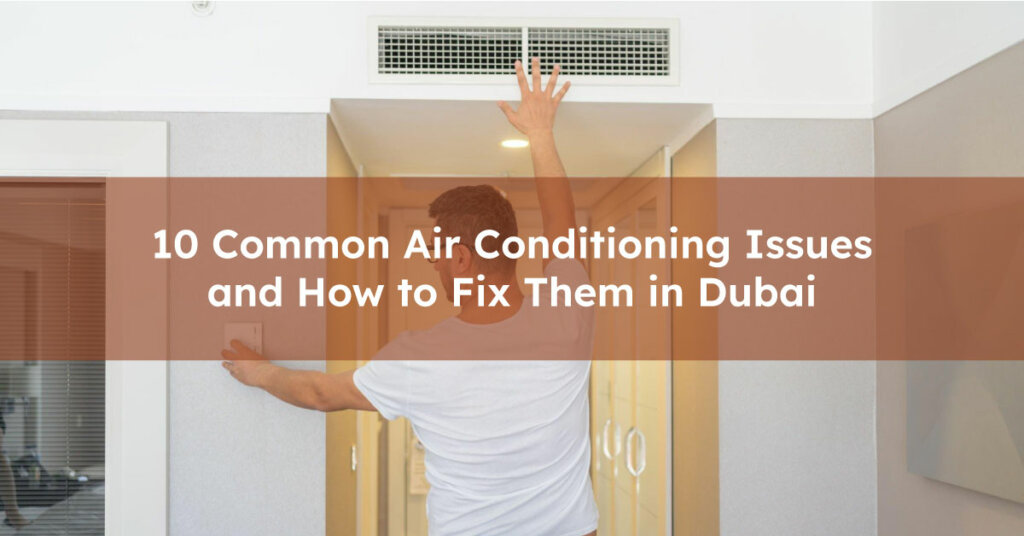Dubai’s extreme heat and humidity are no joke. The scorching summer temperatures can soar beyond 40 degrees Celsius, making air conditioning not just a luxury but a necessity for residents. Keeping your air conditioner in peak working condition is crucial to surviving the city’s sweltering summers. However, AC units are like any other appliances – they can experience problems over time. Understanding common AC issues and their solutions can save you time, money, and frustration, especially when the heat is unbearable.

Air conditioning maintenance is often neglected, leading to poor performance, expensive repairs, or even the need for a full replacement. With some knowledge of common AC problems, you can identify issues early on, make simple fixes yourself, or know when to call a professional for help.
Table of Contents
Key Takeaways
- Schedule professional maintenance annually to prevent potential issues and ensure AC efficiency.
- Clean or replace air filters every 1-3 months to enhance airflow, cooling efficiency, and air quality.
- Seek professional help for refrigerant leaks immediately due to their impact on cooling efficiency and potential health risks.
- Maintain unblocked vents, seal duct leaks, and improve home insulation to ensure even cooling and energy efficiency.
- Promptly address unusual noises, water leaks, and uneven cooling to avoid larger issues and expensive repairs.
- Upgrade to an energy-efficient AC model if your current unit is over 10 years old to save on energy bills and achieve reliable cooling.
1. AC Not Cooling Properly
It’s frustrating when your AC is running, but your home still feels warm and stuffy. Several factors could contribute to this issue, such as:
- Dirty filters: Over time, air filters accumulate dust, pet hair, and other debris, obstructing airflow and reducing cooling efficiency. you can also read our article on the hazards of dirty AC filters and how to keep your home safe to know more about dirty ac filters.
- Thermostat issues: An improperly calibrated or malfunctioning thermostat can lead to incorrect temperature settings.
- Refrigerant leaks: Low refrigerant levels due to leaks can impact the AC’s ability to cool the air.
Solutions:
- Clean or replace filters: Regularly clean or replace your AC’s filters (at least every 1-3 months) to ensure efficient cooling and airflow.
- Reset or replace thermostats: Check your thermostat settings and recalibrate or replace them if necessary. Make sure it’s set to “cool” mode and the desired temperature.
- Contact professionals for refrigerant leaks: Refrigerant leaks are a serious issue that requires professional attention. Avoid handling refrigerant yourself, as it can be harmful to your health and the environment.
Note: To keep your AC running efficiently, schedule regular professional maintenance to check for issues like refrigerant leaks, electrical problems, and thermostat calibration.
By addressing these common causes, you can restore your AC’s cooling efficiency and enjoy a comfortable indoor environment, even during Dubai’s hottest months.
2. Unusual Noises
AC units usually operate with minimal noise, so any strange sounds like rattling, buzzing, or hissing could indicate a problem. Here are some potential causes:
- Loose parts: Components like screws and bolts can become loose over time, causing rattling noises.
- Worn-out components: Aging or damaged components, like fan blades or motors, can create buzzing or grinding sounds.
- Refrigerant leaks: A hissing sound may indicate a refrigerant leak, which can affect cooling performance and may pose health risks.
Solutions:
- Tighten loose parts: Inspect your AC unit for loose components and tighten them as needed. This simple fix can reduce noise and prevent further damage.
- Replace worn-out components: If you notice unusual sounds, have a professional check for worn-out or damaged parts that may need replacement.
- Seek professional help for refrigerant leaks: If you suspect a refrigerant leak, contact an HVAC technician right away. This issue requires specialized tools and expertise.
3. AC Unit Leaking Water
Water leaks are not only inconvenient but can also lead to more severe issues like mold growth or structural damage. Common causes of water leaks include:
- Clogged drain line: Dust, mold, or algae can block the drain line, causing water to back up and overflow.
- Damaged drain pan: Over time, the drain pan can corrode or crack, leading to leaks.
Solutions:
- Unclog the drain line: You can use a wet-dry vacuum or a long, flexible brush to clear obstructions from the drain line.
- Replace the damaged drain pan: If your drain pan is damaged, you’ll need to replace it to prevent further leaks.
4. Uneven Cooling
If some areas of your home are colder than others, you may be dealing with uneven cooling. Common causes include:
- Blocked vents: Furniture, curtains, or other obstructions can block vents, restricting airflow.
- Faulty ductwork: Leaks or damage in the ductwork can affect airflow and temperature distribution.
Solutions:
- Unblock vents: Ensure that all vents are unobstructed to allow for proper airflow and cooling.
- Seal duct leaks: Inspect your ductwork for leaks or damage and seal any gaps with duct tape or mastic.
Remember that proper airflow is crucial for even cooling throughout your home. By addressing these issues, you can enjoy consistent temperatures in every room.
5. High Energy Bills
Experiencing a sudden spike in your energy bills? Your AC unit could be the culprit. Inefficient cooling systems can significantly increase energy consumption. Here are some possible causes:
- Poorly maintained AC units: Neglecting regular maintenance can reduce your AC’s efficiency and lead to higher energy bills. read our article about tips and tricks for maintaining your AC system in Dubai
- Air leaks: Gaps in windows, doors, or ductwork can allow cool air to escape and hot air to enter, making your AC work harder.
- Old, inefficient AC units: Older AC models may consume more energy than newer, more efficient ones.
Solutions:
- Schedule regular maintenance: Having your AC serviced regularly by a professional can improve efficiency and reduce energy costs you can read more about the advantages of professional AC services in Dubai.
- Seal air leaks: Inspect your home for gaps or leaks and seal them with weather-stripping or caulk to improve insulation.
- Consider upgrading: If your AC unit is more than 10 years old, consider replacing it with a more energy-efficient model.
6. Refrigerant Leaks
Refrigerant is essential for cooling the air in your home, but leaks can impact performance and pose health risks. Signs of a refrigerant leak include:
- AC not cooling properly: Low refrigerant levels can reduce cooling efficiency.
- Hissing noises: A hissing sound from your AC unit could indicate a refrigerant leak.
- Ice buildup: Leaks can cause the evaporator coil to freeze, leading to ice buildup.
Solutions:
- Contact a professional: Refrigerant leaks should only be handled by trained technicians, as they require specialized tools and expertise. If you suspect a leak, call an HVAC professional right away.
7. AC Not Turning On
If your AC unit isn’t turning on, it could be due to electrical issues or a faulty thermostat. Here are some potential causes:
- Tripped circuit breakers: Power surges or electrical faults can trip the circuit breaker, cutting power to your AC unit.
- Malfunctioning thermostats: A faulty thermostat may not send the correct signals to your AC unit.
Solutions:
- Check circuit breakers: If your AC unit isn’t turning on, check the circuit breaker and reset it if necessary.
- Inspect thermostats: Verify that your thermostat is properly set and calibrated. If it’s still not working, consider replacing it.
8. Short Cycling
Short cycling occurs when your AC unit turns on and off frequently without completing a full cooling cycle. This can increase wear and tear on your AC and raise energy costs. Common causes include:
- Incorrect AC size: An AC unit that’s too large for your home can cool the area quickly, leading to short cycling.
- Dirty air filters: Clogged filters can restrict airflow, causing the AC unit to overheat and shut off prematurely.
- Low refrigerant levels: Refrigerant leaks can lead to short cycling due to inefficient cooling.
Solutions:
- Properly size AC units: Ensure that your AC unit is appropriately sized for your home to avoid short cycling.
- Replace air filters: Regularly clean or replace your air filters to prevent restricted airflow and overheating.
- Address refrigerant leaks: If you suspect a refrigerant leak, contact an HVAC professional for a proper assessment and repair.
9. Frozen Evaporator Coils
Frozen evaporator coils can hinder your AC unit’s ability to cool your home effectively. This issue can be caused by:
- Restricted airflow: A lack of airflow over the coils can lead to freezing.
- Low refrigerant levels: Refrigerant leaks can result in low levels, causing the coils to freeze.
Solutions:
- Clean or replace air filters: Regularly cleaning or replacing your AC’s air filters can improve airflow and prevent freezing.
- Check refrigerant levels: If you suspect low refrigerant levels, contact an HVAC professional to assess and address the issue.
10. Foul Smells from AC
Unpleasant odors coming from your AC unit can be both irritating and unhealthy. Potential causes include:
- Mold and mildew: Excess moisture and poor ventilation can lead to mold and mildew growth in your AC system.
- Dirty components: Over time, dirt and debris can accumulate in the AC unit, leading to foul smells.
Solutions:
- Clean your AC unit: Regularly cleaning your AC unit, including the air filters and evaporator coils, can prevent mold growth and reduce unpleasant odors.
- Replace air filters: Changing your air filters regularly can help eliminate bad smells and improve air quality.
- Hire professionals for deep cleaning: If the odor persists, consider hiring professionals to perform a thorough AC cleaning.
Tips for Preventing Common AC Issues
Proper maintenance is key to preventing AC problems and ensuring optimal performance. Here are some tips to keep your AC unit running smoothly:
- Schedule regular maintenance: Having your AC unit serviced by a professional at least once a year can help identify and address potential issues early.
- Change air filters regularly: Replacing your air filters every 1-3 months can improve airflow, cooling efficiency, and air quality.
- Properly insulate and seal your home: Improving insulation and sealing gaps or leaks can enhance cooling efficiency and reduce energy costs.
Conclusion
Air conditioning is a vital part of life in Dubai, especially during the scorching summer months. By understanding common AC issues and their solutions, you can keep your living space comfortable and cool while avoiding costly repairs or replacements. Regular maintenance, proper insulation, and prompt attention to any problems can help ensure the longevity and efficiency of your AC unit. check our guide on air duct cleaning and maintenance to learn more about the topic.
Whether you’re facing uneven cooling, unusual noises, or high energy bills, addressing these issues promptly can save you time, money, and inconvenience. If you’re unsure how to fix a particular problem or need professional assistance, don’t hesitate to contact a reputable HVAC service provider in Dubai.
Remember, a well-maintained AC unit can provide you with years of reliable and efficient cooling, making the hot and humid Dubai summers much more bearable.




